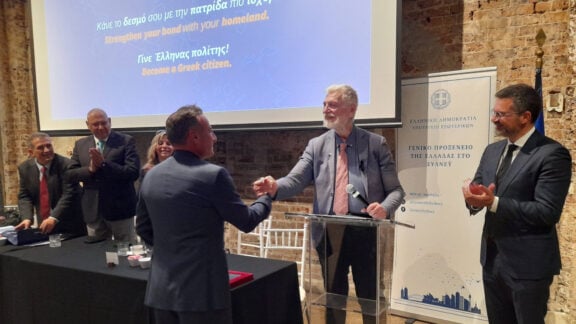Unlike other civilisations that have perished at some point, the Greek civilisation is distinguished because its achievements continue to thrive throughout time and space. For example, two beautiful cities in France, Nice and Marseilles, were founded by the Greeks 25 centuries ago. On May 8, the Olympic torch arrived by boat from Piraeus in the old port of Marseilles and was greeted by a cheering crowd. Then, I travelled through 400 French municipalities before reaching Paris, where the 2024 Summer Olympic Games are organised.
I was enthusiastic, taking into consideration that my family’s roots are in a little village in Messenia, which is only 75 kilometres (46.6 miles) away from Olympia, the birthplace of the Olympic Games centuries ago. They are organised every four years by a different city from another country, adding a unique touch in each case, closely linked with local culture, civilisation, history, and way of life.
Each Olympic Games, from Athens to Beijing, London to Tokyo, is unique, relying on its own characteristics, there is no comparison between them. Because they all contribute something new to humankind every time. Different nations participating in the same competitions while following the same rules is a significant step towards a better world. Unlike the twenty-first century, which is already characterised by geopolitical instability and violent conflicts,
I watched the four-hour opening ceremony on television and billions of others. And I was sure that hosting it in an open location in the heart of Paris rather than a stadium was a hazardous business. Consider how frequently it rains in Paris during the summer – this is precisely what happened.
Then, as expected, several significant events and important figures from French history were presented one after the other, covering several centuries. What struck me was the ominous figure haunting the lovely Parisian rooftops, which was obviously inspired by a well-known French video game. Since Baron Haussmann and the major Parisian reconstruction during Napoleon III, the Parisian roofs have been primarily constructed of grey zinc sheets. Renovated, when necessary, only by specialised craftsmen.
This combination of a video game character and historic rooftops symbolically illustrates one of the fundamental concepts of French thinking. On the one hand, there is a profound respect for tradition and a strong desire for innovation and modernity. The message was repeated twice – when Aya Nakamura, a well-known singer, performed on the bridge in front of the French Academy with the Republican Guard Orchestra and when the French metal band Gojira will perform alongside opera vocalist Marina Viotti at the famous Conciergerie building.
Tradition and modernity live harmoniously in a nation like France, the one doesn’t exclude the other. Just look at how well one of the world’s oldest gothic-style churches, Saint Eustache, fits into the Parisian environment, just a few hundred meters from the revolutionary glass and metal edifice of the Georges Pompidou Contemporary Art Museum and Library. This is the soul of France, reminding us of the Roman god of duality, Janus.
As expected, the Olympic Games ceremony displayed the French art of provocation in its entirety. Provocation has long been another essential component of French culture, practically nothing happens in Paris without a certain kind of provocation, which an American friend of mine describes as Aristophanic.
As a result, the 2024 Paris Olympic opening ceremony has become the most talked-about topic in the media and among political figures worldwide, and reactions ranged from joy to vehement denunciation. But as someone once said, there’s no such thing as bad publicity.
Dr George Tassiopoulos is a Greek French political scientist, with a doctorate in political science from the University of East Paris. He was born in Athens, and has lived in France for the past 22 years where he teaches geopolitics in a business school in Paris.







